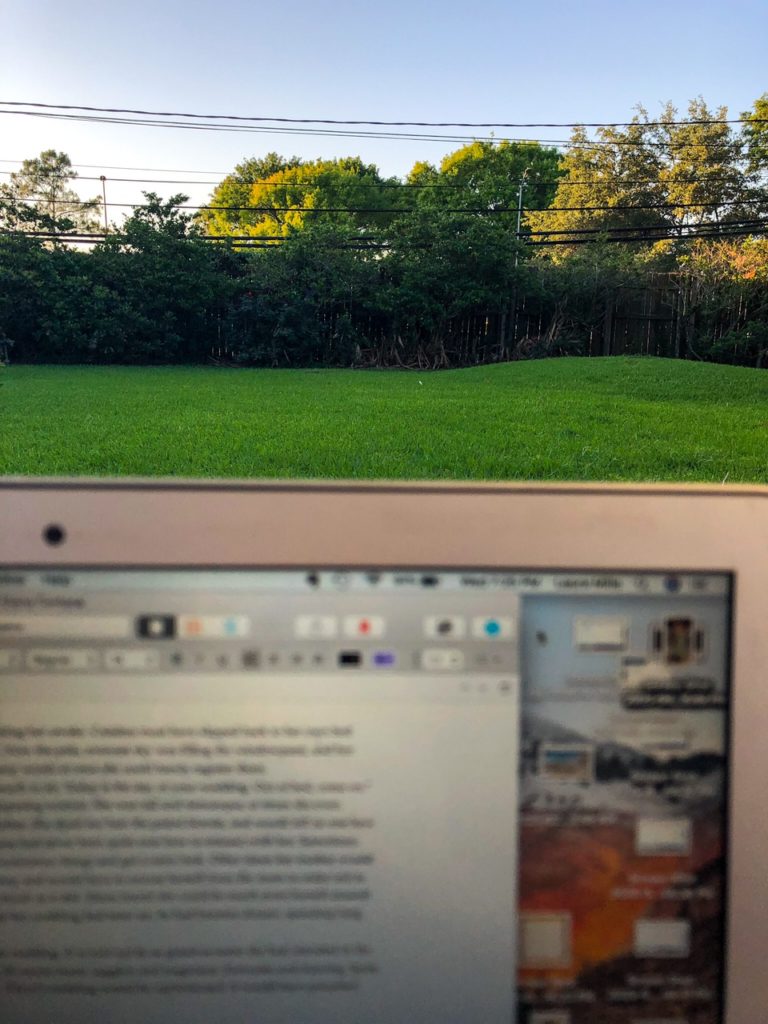Hello! *waves*
Welcome to my sparkly new corner of the internet. I’ve kept a blog for most of my life, but I haven’t returned to it in several years, mainly because writing a blog in 2021 feels like a particularly futile act. Who even reads blogs anymore? Trust me, I’ve asked myself that question more times than I can count.
And after much deliberation about the merits of newsletters (they are the new blogs, after all), I’ve decided that I still like having my own cozy little corner of the internet to call my own. I like the idea of readers having a place to go to read what I write, and I hope that if you’re here, you’ll stick around. Settle in. Make yourself a cup of tea. I’d love to chat about all things writing, reading, and the creative life.
In this first post, I want to talk about the way we talk about writing on the internet. To be a writer online, particularly an unpublished writer, is to exist in a weird liminal space.

“Writing is a form of telepathy between the writer’s mind and the reader’s, a way to give another person a little slice of someone else’s experiences. How is that not magic?”
But at the same time, I can’t help but feel like the way we talk about writing online is performative. And yes, I know everything on the internet is performative, especially social media. But because what we do only exists in a word doc and inside our heads, we have to create a way to perform the work of writing to the outside world. So we take pictures of our laptops in various locals. We report our daily word counts to our online accountability groups. We walk people through our various processes, our habits. We share writing playlists and aesthetics. And we complain. Constantly.
Take one look at writer twitter and you would think we all hated writing. I think this is the heart at what I’m getting at. Yes, writing is hard at times. It can be draining and tedious and frustrating. But to borrow from a famous quote, writing is not coal mining. I worry that by swinging between these two extremes (putting writing on a pedestal, and acting like it’s the worst profession in the world), we’re creating an unrealistic picture of what it actually means to be a writer. Young writers get discouraged when the words don’t flow effortlessly from them when they sit down in their perfectly curated writing space, and others buy into the myth that unless every word is torture, they’re not a true artist. I’m not saying that we should all be Ray Bradbury (who from what I’ve read, found writing to be a joyful, exuberant enterprise that was completely free of angst), but I do think there’s a way to balance these two visions of the writer’s life.
My favorite quote begins: “Our lives are at once ordinary and mythical.”
This sentiment also applies to writing. On the one hand, writing is completely ordinary. We put one word after another. We tinker with sentences longer than any sane person would want to. From the outside, a writer is just a person hunched over their laptop. On the other hand, writing is mythical. It is the delicate alchemy created between the vision in your head and the words on the page. It is a form of telepathy between the writer’s mind and the reader’s, a way to give another person a little slice of someone else’s experiences. How is that not magic? How is that not worthy of a pedestal? Obviously, I don’t have clear answers to these questions, but I think the key is that we have to hold these two opposing forces in our minds. We can’t fall into the trap of the perfect writer’s life or we will only set ourselves up for disappointment, and we can’t succumb to writerly angst lest we end up actually hating writing. Contrary to what these tropes would suggest, there is no one experience of writing that is correct.
And while this all may seem obvious, I think it bears repeating, especially when we are constantly bombarded by the myth of the writing life. I find myself getting caught up in how I think writing “should” feel far too often. Some days writing feels every bit as aesthetic and glamorous as Instagram would have you believe. But most of the time, it is the simple, occasionally tedious task of putting one word after another. And that’s really all it needs to be.
Barbara Mills says:
Hi Laura, I am testing your comments section.